This article will cover Best Aggregators For Bridging Large Amounts. I will be focusing on what makes cross-chain transfers quicker, more affordable, and more secure.
Bridging large amounts of capital requires little slippage, optimized routing, and deep liquidity—all of which these aggregators have.
Every DeFi trader and institutional user should understand the best available options for the safe and efficient transfer of their assets.
Key Points & Best Aggregators For Bridging Large Amounts
| Aggregator | Key Features |
|---|---|
| Across.to | Fast, low-fee transfers; supports 20+ chains; uses UMA’s Optimistic Oracle |
| Stargate Finance | Native token transfers; deep liquidity; supports 80+ chains |
| Polygon Portal | Seamless bridging within Polygon ecosystem; Refuel Gas feature |
| Jumper Exchange | Multi-chain swaps; smart route classification; supports 17+ networks |
| DeFiLlama | Aggregates DEX and bridge data; supports 20 chains |
| Rango Exchange | Cross-chain swaps; integrates multiple bridges and DEXs; user-friendly interface |
| Socket.tech | Modular bridging infrastructure; supports custom routing and liquidity sources |
| Squid Router | Built on Axelar; supports cross-chain swaps with smart routing |
| Orbiter Finance | Low-cost Ethereum Layer 2 bridging; fast and gas-efficient |
| Meson.fi | Stablecoin-focused bridge; low slippage; optimized for large stablecoin transfers |
10 Best Aggregators For Bridging Large Amounts
1. Across.To
Across.to is built for speed as a cross-chain bridge aggregator. It is built for cross-chain large transaction processing with very little slippage.
It works with chains like Ethereum, Arbitrum, and Optimism. Across.to is the best option for customers moving large volumes of tokens.
Safety is a priority, and the system employs the use of optimistic roll-ups with extensive smart contract assessments for safe asset transfers.
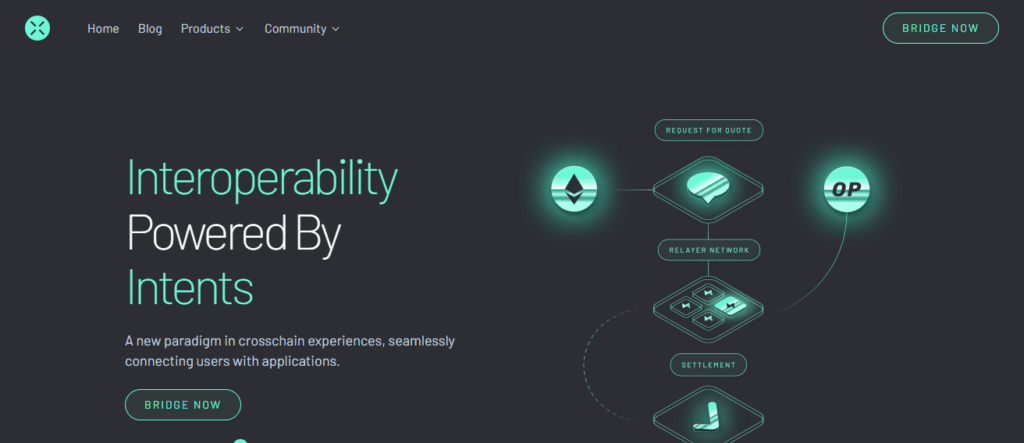
It provides a simple interface with transparent costs and optimized gas in real time. Also, they provide instant transfers in certain instances.
This is what makes Across.to a more trustworthy option for high-value and institutional transfers.
Features Across.to
- High-Speed Transfers: Optimized for rapid cross-chain transactions utilizing Layer 2 rollups.
- Low Slippage: Large transfers incur minimal price impact due to deep liquidity pools.
- Security Focused: The assets are protected with smart contract safeguards and routine audits.
- Multi-Chain Support: Ethereum, Arbitrum, Optimism, and other prominent chains are supported.
2. Stargate Finance
Stargate Finance is a liquidity solution across multiple blockchains. Competing offers for your liquidity needs are combined for cost-effective bridges.
Stargate leverages LayerZero for quick and safe cross-chain swaps. It uses proprietary pools to manage slippage and depth to cater to the needs of high-value transactions.
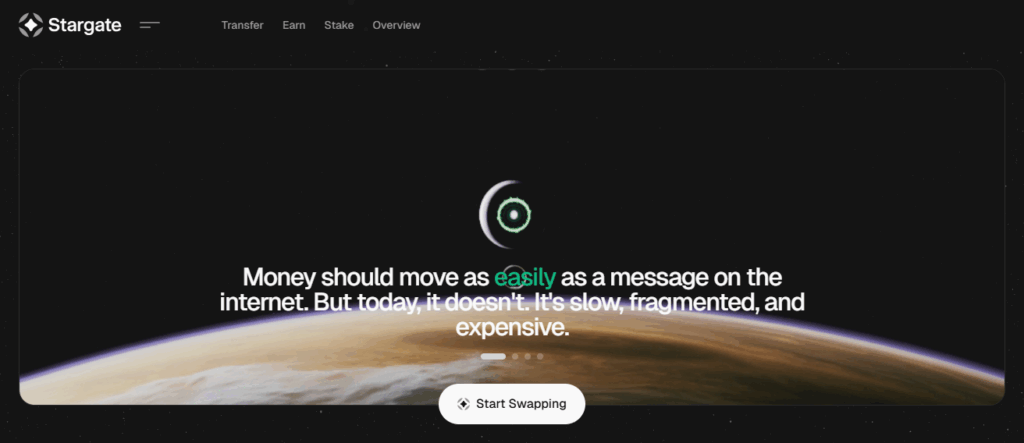
Supporting both stablecoins and native assets increases asset versatility for DeFi applications.
From the DeFi angle, users can bridge assets and share farm yield, Optimizing the process for scaled operations.
Features Stargate Finance
- Unified Liquidity Pools: Slippage is minimized by consolidating liquidity across different chains.
- LayerZero Infrastructure: Cross-chain transfers are secure and composable.
- Stablecoins & Native Assets: Efficiently bridges stablecoins and associated tokens.
- DeFi Integrations: Provides seamless multi-step processes by connecting with other DeFi protocols.
3. Polygon Portal
Polygon Portal serves as an aggregator for efficiently bridging assets to and from the Polygon network.
It manages your transactions with the utmost care across multiple Layer-2 solutions as well as Ethereum, making sure your Polygon Portal transactions are cost-efficient and are approved within the shortest time possible.
Polygon Portal users are able to access slabs of liquidity which limit slippage and are able to bridge large amounts of tokens at low cost.
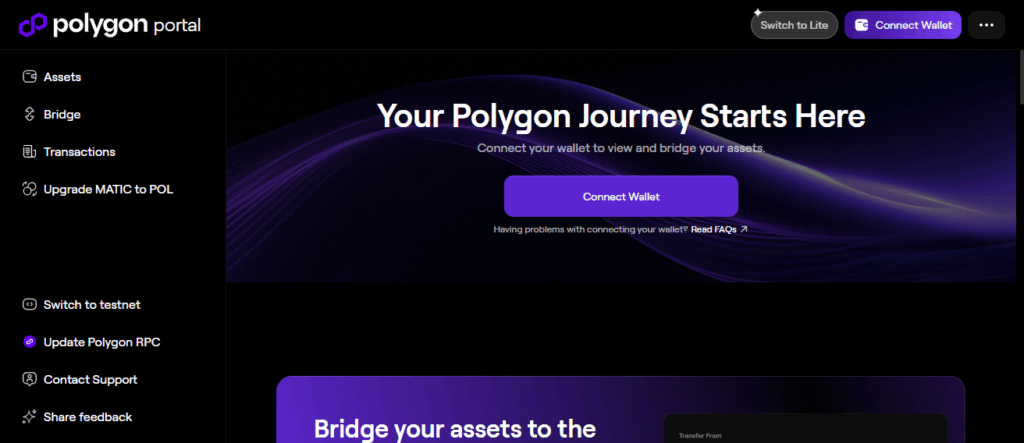
Polygon Portal also aims to provide cost-competitive services and measures access costs to services against traditional bridging to Polygon Portal.
Polygon Portal services are also cost efficient for big users. Polygon Portal strengthens and audits its smart contracts and uses Polygon’s optimized and scalable network.
Users of Polygon Portal are able to manage and track their cross-chain transfers, for their own convenience, the Portal is designed for both casual users and professionals.
Features Polygon Portal
- Polygon Optimization: Designed for speedy bridging to and from the Polygon network.
- Fee Efficiency: Optimized routing effectively lowers transaction costs.
- User-Friendly Dashboard: The dashboard indicates the cost and status of transfers.
- Security Audits: Cross-chain transfers are secured through contract audits.
4. Jumper Exchange
Jumper Exchange is a cross-chain aggregator mainly concerned with facilitating large token transfers at the best possible rates.
For high-value customers, it pools liquidity from various DEXs and bridge protocols and thereby manages to cut slippage and deal with transaction costs.
Solana, Ethereum, and Binance Smart Chain are a few of the blockchains Jumper Exchange supports, which performs multi-chain operations.
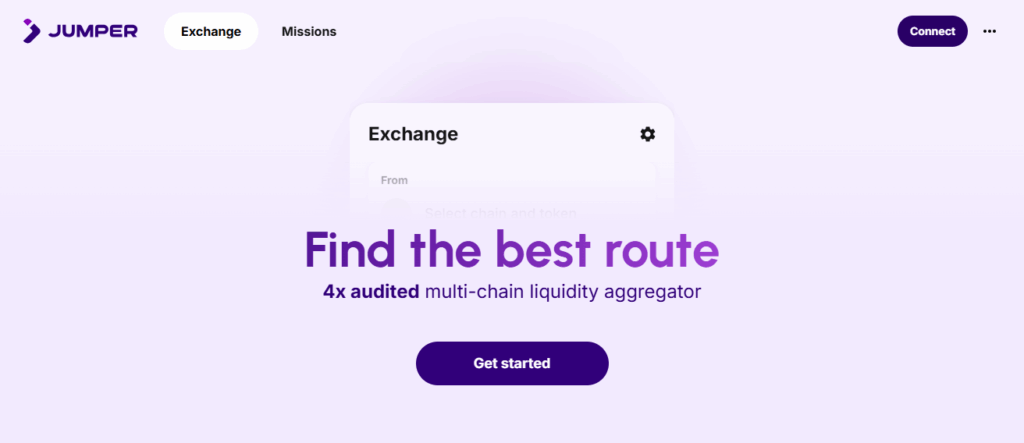
For the purpose of minimizing fees and optimizing speed, smart routing algorithms are used to select the best possible options.
Jumper Exchange is commended for its focus on operational transparency and security audits. Because it supports a wide range of sophisticated transactions
Jumper Exchange is ideally positioned to cater to institutional customers as well as DeFi traders engaged in high-value transfers.
Features Jumper Exchange
- Smart Routing: The system identifies the most cost-effective and quickest bridging routes.
- Multi-Chain Compatibility: Services offered for Ethereum, BSC, Solana and more.
- Liquidity Aggregation: Slippage is minimized by tapping multiple DEXs, bridges, and liquidity sources.
- Institutional Ready: Processes and secures high-value transactions with competence and ease.
5. DeFiLlama
The DeFiLlama analytics aggregator is known for providing insights into bridging protocols. It tracks liquidity, fees, and the total value locked (TVL) across multiple bridges, helping users find the best path for large transfers.
DeFiLlama compiles data across multiple protocols so users can make informed decisions that minimize slippage and maximize cost efficiency.
It is not a bridge, but a user in need of high-value transfers can identify the best bridge or aggregator using DeFiLlama.
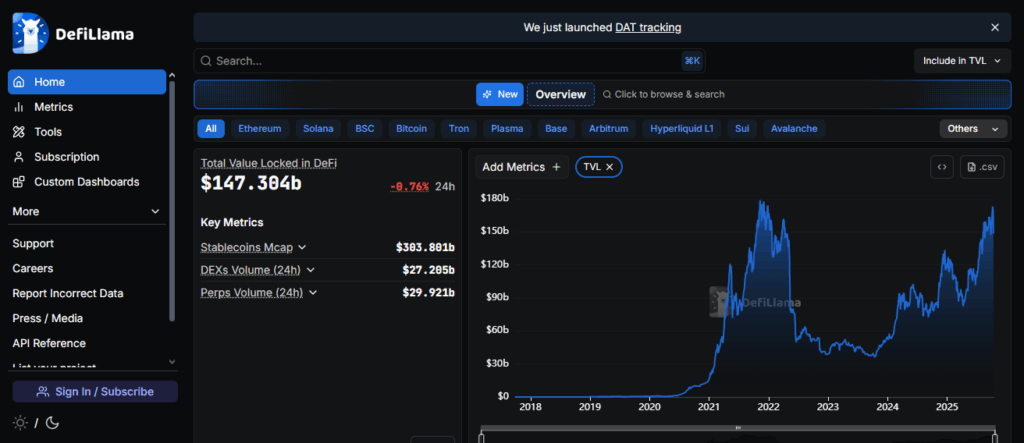
It is open source and provides real-time analytics on security, efficiency, and liquidity, making it a reliable tool for the DeFi community.
That transparency added to real-time analytics on security, efficiency, and liquidity turns DeFiLlama into a reliable tool for the DeFi community.
Features DeFiLlama
- Analytics Aggregator: Shows total value locked (TVL), fees, and liquidity details in various protocols.
- Bridge Insights: Helps users find the best options for cross-chain swaps.
- Open-Source & Transparent: Community participated and updated DeFi stats in real time.
- Decision Support: Great for large transactions with low slippage and good execution.
6. Rango Exchange
Rango Exchange offers a simplified way to perform cross-chain swapping and bridging. It cuts down on fees and slippage by automatically choosing the most efficient pathways for your transactions.
It doesn’t matter how much you are moving: Rango works for all token quantities. It has multi-chain operability and is compatible with an impressive range of tokens and chains.
Rango offers a simple user experience by providing expected transaction durations and costs.
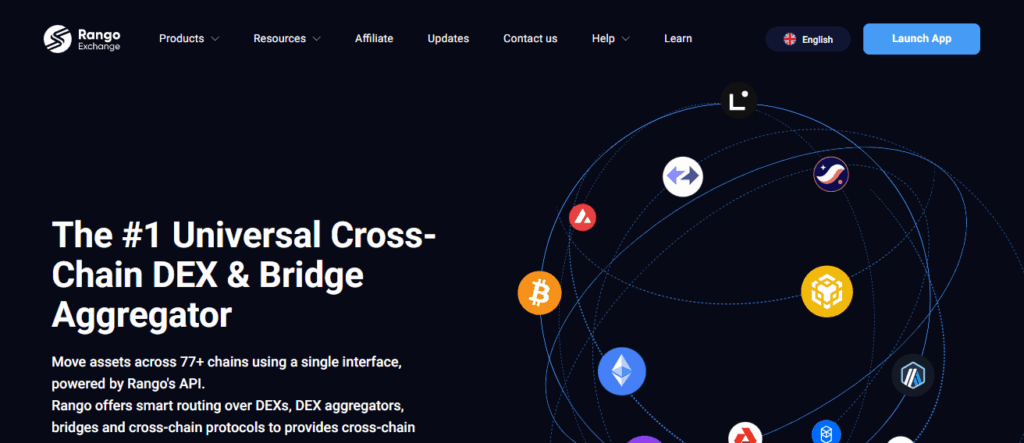
In addition to user-friendliness, Rango Exchange prioritizes security, conducting audits and using safe smart contracts.
Users bridge their funds without leaving their environment, and Rango is perfect for very frequent cross-chain transactions, whether low or high in value, because of its connection to popular wallets and DeFi platforms.
Features Rango Exchange
- Cross-Chain Routing: Picks the best ways to transfer assets and save costs.
- Wide Token & Chain Support: Multiple assets can be bridged across a number of networks.
- Low Slippage: Helps large liquidity contributes with less price movement.
- Secure Transfers: Ensured by audits of smart contracts and incorporated wallets.
7. Socket.tech
Socket.tech acts as a cross-chain liquidity aggregator for multiple networks. It aims to provide the fastest channel as well as the most cost-effective.
It utilizes a smart routing algorithm to analyze the most efficient bridge path for tokens and significantly reduces slippage for larger transfers.
Integrating multiple DEXs as well as bridging protocols, Socket.tech provides an extensive liquidity supply for larger transfers.
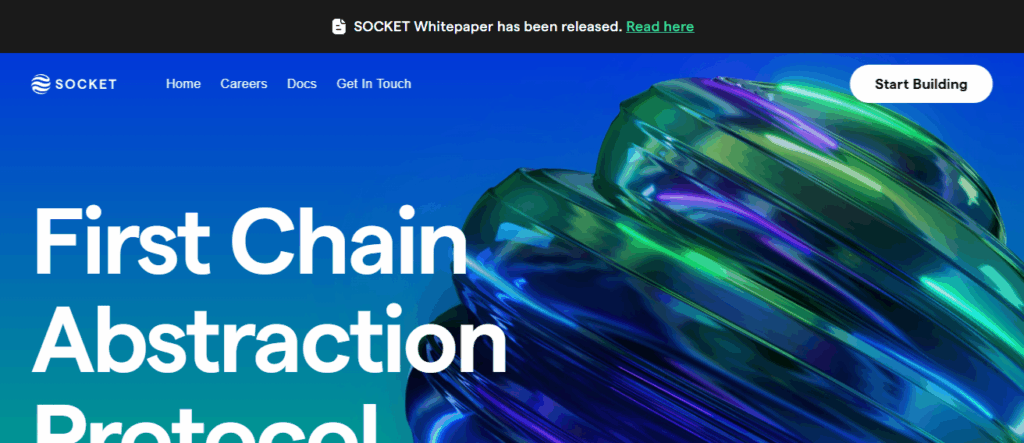
It also ensures safety with audited smart contracts as well as a transparent transaction tracking system.
Socket.tech provides a user-friendly interface and helps its customers with both manual and automated systems for transaction easing.
This makes it ideal for big DeFi traders and institutions that want to bridge large amounts and do so seamlessly.
Features Socket.tech
- Smart Liquidity Routing: Uses the best liquidity to save costs and slippage.
- Multi-DEX Aggregation: Uses a number of DEXs to gain access to large liquidity.
- Developer Friendly: Enables both manual and automated transaction execution.
- Security & Transparency: Contracts are audited and transactions are traceable.
8. Squid Router
The Squid Router multi-chain bridge aggregator optimizes transactions to keep to a minimum and as fast as possible.
This balances trade-offs of different blockchains and fulfills transfers of large token amounts.
Its Squid Router advanced transaction splitting and routing algorithm minimizes slippage and gas fees.

Supporting chains including Ethereum, BSC, and Avalanche enables cross-chain DeFi access. Report transparency, blockchain allocation, and smart contract audits highlight the focus on security.
The customizable dashboard includes transaction cost and time estimation and execution time metrics, which are important for high-value asset institutional traders, to facilitate trading movement.
Features Squid Router
- Multi-Chain Routing: Efficiently splits transactions for cheaper execution.
- Deep Liquidity Pools: Ensures value transfer ease for high-value users.
- User Dashboard: Displays up-to-date fees, execution durations, and other stats.
- Security Audits: Operations are transparent, and smart contracts are reliable.
9. Orbiter Finance
Orbiter Finance has been designed to be an efficient Layer-2 bridge with rapid, economical, and efficient cross-chain token transfer capabilities.
It utilizes advanced strategies in liquidity pool management and smart transaction routing to optimize cost and eliminate slippage for substantial transactions.
Orbiter Finance efficiently bridges high-value assets and supports many networks, including Ethereum Layer 2s like Arbitrum and Optimism.
The contracts undergo frequent audits, and risk mitigations emphasize and ensure complete safety.
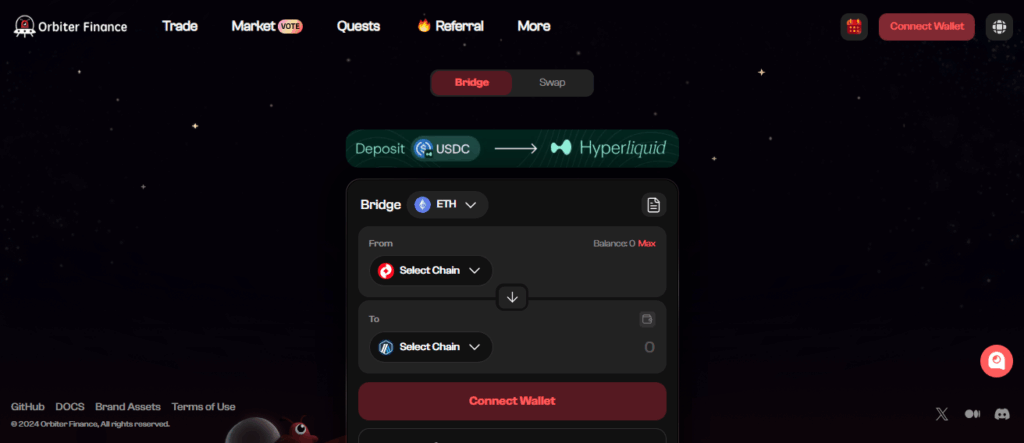
It is easy to use and lets clients assess cost, compute time, and visualize transaction routing.
Orbiter Finance is an excellent option for institutional clients and DeFi players engaged in sizable cross-chain transactions as it earns high marks for speed, safety, and cost.
Features Orbiter Finance
- Layer-2 Optimized: Swift and economical bridging on Layer-2 networks.
- Smart Routing: For large transfers, it reduces slippage and gas fees.
- Multi-Chain Support: Compatible with Ethereum L2s and other key L0 blockchains.
- Secure Interface: Signed contracts, with fees, lengths, and time predicted to complete.
10. Meson.fi
Meson.fi is a non-custodial cross-chain liquidity protocol designed for instant and secure bridging of large amounts.
It uses a network of relayers and liquidity provides to achieve fast transit times without centralized intermediaries.
Meson.fi manages to reduce slippage and gas fees by splitting transactions and optimizing their routes.
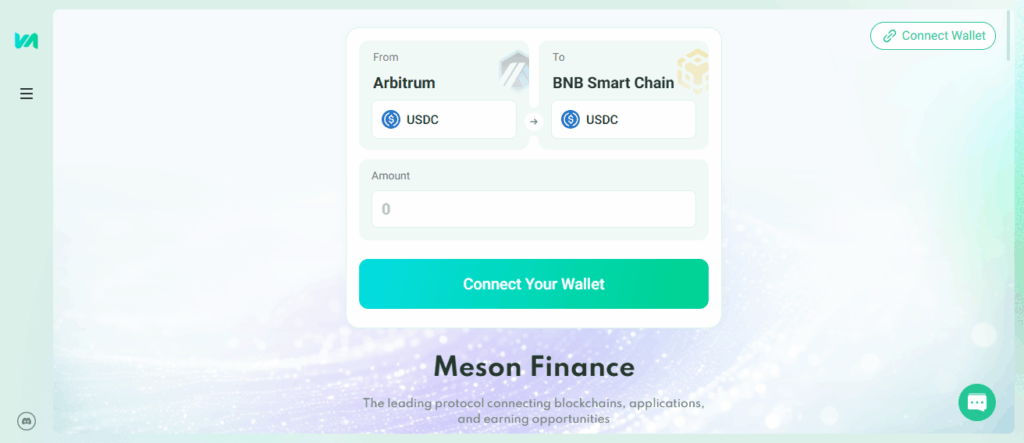
It works with a variety of blockchains and tokens to provide flexible multi-chain transactions. It employs various security and governance mechanisms, including audited smart contracts and open governance.
It works with major wallet tors so that casual and professional traders alike have a seamless experience. For cross-chain transactions that are large, fast, and secure, Meson.fi is the best option.
Features Meson.fi
- Non-Custodial: Transfers can happen without relying on centralized intermediaries.
- Instant Bridging: Fast transactions are possible due to relayers and liquidity providers.
- Optimized Routing: In order to reduce slippage and costs, transactions are split.
- Multi-Chain & Wallet Support: Major tokens, chains, and wallets are supported.
Conclusion
In conclusion When bridging significant sums, the right choice of aggregator is vital for achieving desired speed, security, and cost efficiency.
Across.to, Stargate Finance, and Meson.fi stand out with deep liquidity, optimized routing, and thorough audits, allowing for rapid transfers with minimal slippage.
Ultimately, an aggregator’s choice is determined by the particular chains and types of tokens, as well as the size of the transaction, providing for safe and effective cross-chain transfers.
FAQ
A bridge aggregator routes tokens across multiple blockchains, finding the fastest, cheapest, and most secure path while minimizing slippage.
Aggregators optimize liquidity and routing, ensuring minimal fees and price impact for high-value transactions.
Across.to and Orbiter Finance are known for their speed, especially on Layer-2 networks.
Stargate Finance, Meson.fi, and Socket.tech emphasize security with audited smart contracts and risk mitigation.
Yes, smart routing reduces slippage and chooses the most cost-effective bridge path, saving money on large transfers.



